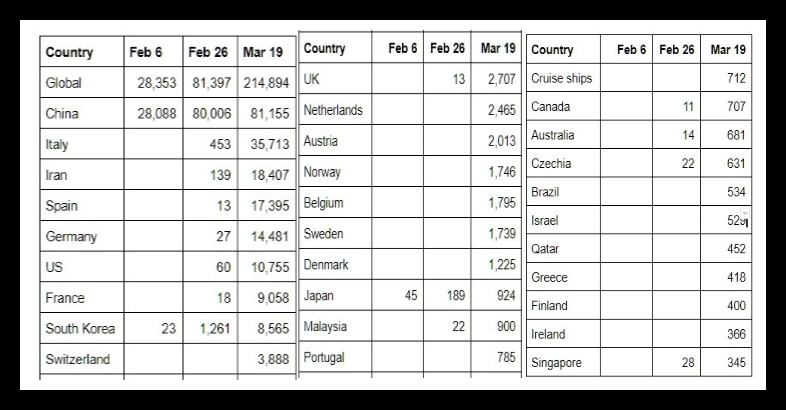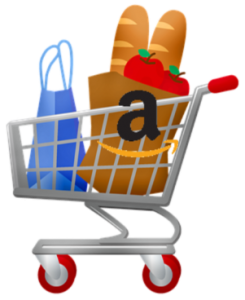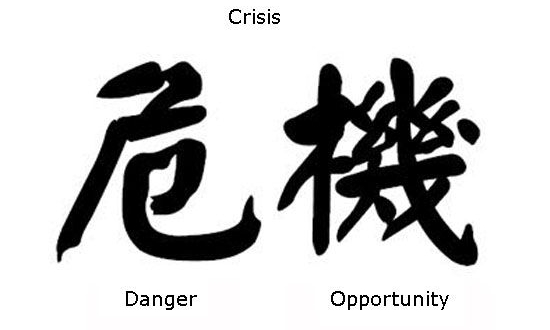
While US payments, fintech, and e-commerce are our focus, we tend to look globally for insight and business intelligence. Six weeks ago we took an early look at the incidence of coronavirus and its impact on key business sectors we cover.
We decided to reexamine the incidence of the virus and also present another roundup of business impact news. The changes from our original Feb 6 and Feb 26 posts are stunning and revealing as you’ll see below when comparing coronavirus data provided by Johns Hopkins University’S excellent website.
Coronavirus six weeks ago, three weeks ago, today
Despite the dangerous lies, disinformation, racism, and dissembling from the White House, the situation in the US is at its early stages because, frankly, not enough tests have been done to identify the true scale of the disease.
The numbers are shocking and they tell a perfect story of the fast spread of coronavirus globally:

The incidence of coronavirus cases has grown dramatically in the past 40 days from 28,353 on Feb 6 (mostly in China) to 80,007 on Feb 26 and 230,055 on March 19. The number of deaths globally on March 19 reached 9,358 with Italy (2,978) nearly overtaking China (3,103), despite the vast difference in population size. Only 2,770 deaths were recorded globally by Feb 26 and just 565 by Feb 6.
All this is before we start to see a big jump in realistic results as testing ramps up in the US. I predict the US will be shocked and in crisis mode within a week.
COVID-19 impact on business globally
There are thousands of new stories every day about the impact on industries, small businesses, workers, and customers. For example, think about the real estate business which depends heavily on open houses to drive traffic and reach prospective buyers.

A realtor friend of mine in Vancouver, Canada said a Facebook realtors’ page had generated an uproar yesterday about the upcoming 600 or more open houses planned for the weekend. The Real Estate Board had not yet provided rules or guidelines to ensure social distancing or other ways to minimize potential virus exposure for both clients and realtors.
She told me, “I do have a family that is going to be homeless if I don’t get them into something. We need to go and look. I have asked for appointments and been declined a few times and then gone back and said we are willing to mask and wear gloves and not touch anything in the home. There’s just three of us. So I have four showings booked tonight and we are all going to adhere to the rules.”
A colleague who is a marketing director with a building supplies company said the company had a near-record February sales month because of architects, builders, trades, consumers and others buying and ordering construction materials in hopes of avoiding supply-chain problems for their key projects in the months ahead.
Businesses are legitimately concerned about the reliability of their product supply chains if the COVID-19 pandemic worsens or lengthens in duration. A small encouraging sign is that China for the first day saw no new internal coronavirus cases and the country may be getting ready to get back to work.
The White House’s racist rhetoric about the “Chinese virus” has offended the Chinese government and just like in the tariffs dispute, US businesses are increasingly nervous as are the markets.
What are business leaders saying about the pandemic?
Comments from business leaders in banking, finance, e-commerce, retail, and the markets reflect serious concerns about the economic impact of the coronavirus.

“The current pandemic has shone a bright light on business continuity plans, with executive leaders examining how mission-critical functions are tied to manual office processes. Typically, business continuity is a geographic issue, but today we are dealing with geography in the sense of office space, and any manual business process poses a massive risk,” said Angelic Gibson, CIO of AvidXchange.
“It’s important to digitize internally or with a trusted partner and prioritize based on which processes might be more problematic if upended, as plans are stretched for an uncertain period of time. In a crisis situation, it’s important to learn and lean into new innovations. How we choose to innovate now under pressure will make us stronger and better for the future,” she added.

Writing in a Deloitte Insights newsletter, the authors pointed to the potential impacts of the coronavirus on the financial industry: “With ongoing shocks to the supply and demand side, there is potential for further market disruption. Institutions and individuals may be experiencing liquidity stress, including limited access to credit. This might, in turn, increase the probability of default, especially near or in the speculative grade of corporate debt. Private debt, including corporate and household debt, has reached record levels recently, and approximately one-half of the investment-grade market currently holds a triple-B rating.”
In its new white paper, Taking Stock of COVID-19: The Short- and Long-Term Ramifications on Technology and End Markets, ABI Research Analysts look at the current and future ramifications of COVID-19 across technologies and verticals. Analysts also offer recommendations to weather the storm and strategies to help companies rebound and prosper after the pandemic has slowed.
“To effect change, there must be a stimulation of a magnitude that means companies cannot do anything but make bold decisions to survive. COVID-19 is that magnitude,” explains Stuart Carlaw, Chief Research Officer at ABI Research.

In a new Nielsen report, the authors look at data regarding consumer spending around coronavirus: “Correlating COVID-19 news events, such as public health announcements and government press conferences with consumer spending on items such as hand sanitizers and shelf-stable foods, reveals a series of recurring patterns. These patterns (though still evolving), when reviewed across impacted countries, help provide a set of leading indicators for packaged goods manufacturers and retailers faced with supply issues as they race to meet record levels of demand and changing purchase habits.”
Sanjiv Anand, CEO of IBS Intelligence, offered ten impacts on the banking business including: “Financial Services sector stability and profitability come under pressure – stock valuations and prices come down. Lower business and consumer transactions mean lower income. Basically, the full revenue and cost model are affected creating an urgent need to transform, including job losses.”
Invoiced is offering it’s Automated accounts receivable software for free to US nonprofits for the next six months. “Recent events throughout the world have instantly changed how every business operates. We want to do what we can to help make this challenging time easier for nonprofits who may be experiencing severe effects of the current business climate,” said Jared King, co-founder and CEO of Invoiced.
COVID-19 news impact roundup
Following is a collection of stories showing the impact of coronavirus on the economy and a wide range of businesses and workers.
American life has been transformed in a few short weeks
On March 3rd there were just 122 confirmed cases of COVID-19, the disease currently sweeping the world, and only seven deaths. By March 17th there were 7,786 confirmed cases (even these were a sure underestimate given the dearth of testing) and 118 deaths. Twenty-eight days later, on March 31st, what might America look like? Read more…

US economy will shrink 14% as coronavirus leads to worst contraction in 50 years: JPMorgan
Even if there’s a rebound in the second half, the economy will still shrink 2% over the year. The coronavirus will result in the worst quarterly GDP growth contractions in the past 50 years according to a new JPMorgan Chase & Co note which predicts the US economy will shrink by a stunning 14% in the second quarter of 2020. JPMorgan chief economist Bruce Kasman painted a bleak picture of what’s to come for the US and the other world’s economic powers over the following months. Read more…
Investor Ray Dalio estimates the corporate losses in the US from coronavirus will top $4 trillion
SRay Dalio, the founder of Bridgewater Associates, estimated the U.S. corporate losses will amount to $4 trillion due to the coronavirus pandemic. Globally, the outbreak will cost corporations $12 trillion, he added. “What’s happening has not happened in our lifetime before. … What we have is a crisis,” Dalio said. “There will also be individuals who have very big losses.” Dalio added the fiscal stimulus package should be at least $1.5 trillion to $2 trillion. Read more…
Amazon’s first coronavirus
case in a US warehouse could complicate shipping
It’s one case in a New York delivery station, but the potential of a
ripple effect is real. Amazon has
reported its first confirmed COVID-19 case in its US warehouses, a network of
facilities that has quickly turned into a critical need for millions of
customers as they stay at home during the coronavirus crisis. The worker was
stationed at a site in a Queens, New York, a delivery station, which is much smaller than one of Amazon’s
sprawling fulfillment centers. Read
more…

More retail stores close, offer free perks to promote online shopping
Online retailers continue to adapt to the ever-changing environment that the coronavirus—called COVID-19—outbreak has wrought. 50% of the 62 retailers in the Digital Commerce 360 Top 100 that operate retail stores have closed all their stores due to the coronavirus pandemic. Plus, 60% of retailers in the Top 100 have a coronavirus-related message on their site, most often in the form of a banner on the homepage, to alert shoppers as to what they’re doing to support customers and employees during the outbreak. Read more…
Top nine omnichannel retail chains gross $17 billion more than bottom 31
An analysis of the 215 retail chains ranked in the Internet Retailer 2019 Top 1000 shows the top nine omnichannel retailers—as ranked by the number of features they offer—gross $17 billion more in web sales in 2018 than the 21 chains who don’t offer any of the nine omnichannel features tracked by Internet Retailer. Among the most popular omnichannel features are buy online pick up in-store and booking an in-store service appointment online. Read more…
Womply data show how the coronavirus has KO’d many merchants
New findings from a software and business-services provider that examined what happened at thousands of small businesses last week show the damage the coronavirus, or Covid-19 is inflicting on merchants. San Francisco-based Oto Analytics Inc., which does business as Womply, looked at payment card data from its merchant-acquiring partners, data generated nationwide from merchants that included 48,000 restaurants, 10,000 grocery stores, 4,600 bars, 64,000 retail shops, and 6,400 lodging businesses. Most of the businesses are not Womply clients. For many, things were pretty ugly. Read more…

Laura Ashley heads for insolvency as coronavirus deepens retail woes
The iconic clothing maker’s position was already precarious before the viral outbreak as it struggled amid falling sales to find cash to fund a turnaround. The clothing and furnishings retailer, best known for its floral and paisley designs, intends to appoint administrators, a U.K. procedure similar to Chapter 11 bankruptcy protection, according to a statement on Tuesday. While sales had improved recently, the coronavirus outbreak “had an immediate and significant impact on trading and ongoing. Read more…
US non-store retail sales grow 8.2% in February
Although the coronavirus concerns began ramping up in the United States last month, retail spending didn’t appear to take an immediate hit. U.S. non-store retail sales increased 8.2% year over year in February, according to a Digital Commerce 360 analysis of US Department of Commerce advance monthly figures released Tuesday. Numbers exclude estimated fuel sales. This marked a deceleration from 10.7% growth for the month in 2019 but is a higher year-over-year growth than January’s revised 7.8%. Read more…
Restaurants across the country may down shutters from today
The National Restaurant Association of India (NRAI), which represents 500,000-plus restaurants across the country, has advised its restaurant members to shut down dine-in operations starting Wednesday across the country till March 31, following the outbreak of the deadly coronavirus. This will impact operations of thousands of dine-in restaurants, pubs, bars, and cafes across the country. Read more…

Grocery apps see record downloads during coronavirus outbreak
Instacart, Walmart Grocery, and Shipt have seen respectively 218%, 160%, and 124% increases in average daily downloads compared to the previous month, according to research from Apptopia. This past Sunday was a record for each app, according to the report. Target also saw a 98% jump in average daily downloads on Sunday over the average daily download in February, per Apptopia’s findings. But as grocery ordering apps rise in average daily downloads, food delivery apps have seen a decline amid the COVID-19 outbreak. Read more…
Remote work during coronavirus outbreak puts millions more on Microsoft Teams, Slack
Microsoft Corp’s Teams chat and conferencing app gained more than 12 million daily users in one week, a 37.5% jump as more people worked from home during the coronavirus outbreak, the company said on Thursday. Teams had 44 million users as of March 18, Microsoft said, more than double the 20 million daily active users that the software maker reported in November. Read more…
Editor’s update: Today, New York Gov. Andrew Cuomo held a news conference outlining strict rules and regulations to govern business and social interaction throughout the state. The measures are tough and include mandatory closures, nonessential workers directed to stay home, and other measures including fines for noncompliance by businesses and individuals. These are tough steps to take but they’re essential to blunt the impact of the coronavirus.
Cuomo showed immense leadership and finished his news conference with a powerful statement that stands in stark contrast to the White House. About the tough measures he said, “I take full responsibility!” and he added that in the future, looking back, he wants to be able to say “We did everything we could.”
Leaders in business and government take note!








LET’S CONNECT